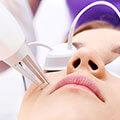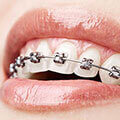
What Is CT Coronary Angiography (CTCA)?
CT Coronary Angiography (CTCA) is a non-invasive imaging procedure used to assess the coronary arteries of the heart. It provides detailed images to diagnose coronary artery disease (CAD) and evaluate overall heart health.
How Does CT Coronary Angiography Work?
CT Coronary Angiography works by combining advanced computed tomography (CT) scanning technology with a contrast dye injection. This allows for clear, cross-sectional images of the coronary arteries, revealing any blockages, narrowings, or abnormalities.
Why CT Coronary Angiography (CTCA) is Preferred
CT Coronary Angiography (CTCA) has emerged as a preferred diagnostic tool in the assessment of coronary artery disease. This non-invasive imaging technique uses advanced computed tomography (CT) technology to capture detailed images of the coronary arteries. Here are the key reasons why CT Coronary Angiography is preferred:
- 1. Non-Invasive Nature: Unlike traditional coronary angiography, CTCA does not require catheter insertion into the heart. This significantly reduces the risk of complications and discomfort for the patient.
- 2. High Accuracy and Precision: CTCA provides high-resolution images that allow for precise evaluation of the coronary arteries. This helps in the accurate detection of blockages and other abnormalities.
- 3. Quick and Convenient: The procedure is relatively quick, usually completed within 30 minutes. This makes it convenient for both patients and healthcare providers, facilitating prompt diagnosis and treatment planning.
- 4. Early Detection: CTCA is highly effective in detecting early signs of coronary artery disease, allowing for timely intervention and management. Early detection can prevent the progression of the disease and reduce the risk of heart attacks.
- 5. Comprehensive Assessment: In addition to evaluating the coronary arteries, CTCA can assess other cardiac structures, including the heart chambers and valves, providing a comprehensive overview of the patient's cardiac health.
- 6. Less Radiation Exposure: Advances in CT technology have significantly reduced radiation exposure, making CTCA a safer option for repeated evaluations if necessary.
What It Detects
CT Coronary Angiography (CTCA) scan is a powerful diagnostic tool that can detect a wide range of cardiac conditions, including:
- 1. Coronary Artery Disease: Identification of blockages, narrowing, or plaque buildup in the coronary arteries that can lead to heart attacks.
- 2. Aneurysms: Detection of abnormal bulges or dilations in the coronary arteries that could rupture and cause severe complications.
- 3. Congenital Heart Defects: Identification of structural abnormalities in the heart present from birth.
- 4. Heart Function: Assessment of the heart's pumping function and detection of areas with reduced blood flow.
- 5. Calcium Scoring: Measurement of calcium deposits in the coronary arteries, which can indicate the presence and extent of atherosclerosis.
- 6. Stent and Bypass Graft Evaluation: Evaluation of the patency and condition of previously placed stents or coronary artery bypass grafts.
CT Coronary Angiography is an invaluable test in modern cardiology, offering a non-invasive, accurate, and comprehensive method for assessing and diagnosing coronary artery disease and other cardiac conditions.
Procedure
The CT Coronary Angiography (CTCA) scan procedure involves several steps to ensure accurate and safe imaging
- 1. Preparation: Patients may be advised to avoid caffeine and heavy meals for a few hours before the procedure. A beta-blocker may be administered to slow the heart rate for better image quality.
- 2. Positioning: The patient lies on a motorized table that moves through the CT scanner. Electrodes are attached to the chest to monitor the heart's activity.
- 3. Contrast Injection: A contrast dye is injected into a vein in the arm to enhance the visibility of the coronary arteries. The dye helps highlight any blockages or abnormalities in the arteries.
- 4. Scanning: The CT scanner rotates around the patient's chest, capturing detailed cross-sectional images of the heart and coronary arteries. The patient may be asked to hold their breath for short periods to ensure clear images.
- 5. Post-Procedure: After the scan, the patient can usually resume normal activities immediately. The images are processed and analyzed by a radiologist, who provides a detailed report to the referring physician.
Why Choose Usmanpura Imaging for CT Coronary Angiography?
Usmanpura Imaging offers state-of-the-art CT technology, experienced radiologists specializing in cardiovascular imaging, and a commitment to patient comfort and safety. Trust Usmanpura Imaging for accurate diagnosis and compassionate care.
At Usmanpura Imaging, we strive to offer competitive pricing while ensuring the highest quality of care. For the most accurate and up-to-date pricing information, please contact our office directly.
Booking your appointment for a CT Coronary Angiography at Usmanpura Imaging is simple and convenient. Schedule your CT Coronary Angiography with us today and take a proactive step towards better heart health.
CT Coronary Angiography - Best Test for the Heart | Part-1 | Dr.Amit Gupta
CT Coronary Angiography - Best Test for the Heart | Part-2 | Dr.Amit Gupta
Subscribe to our
Newsletter
***We Promise, no spam!




